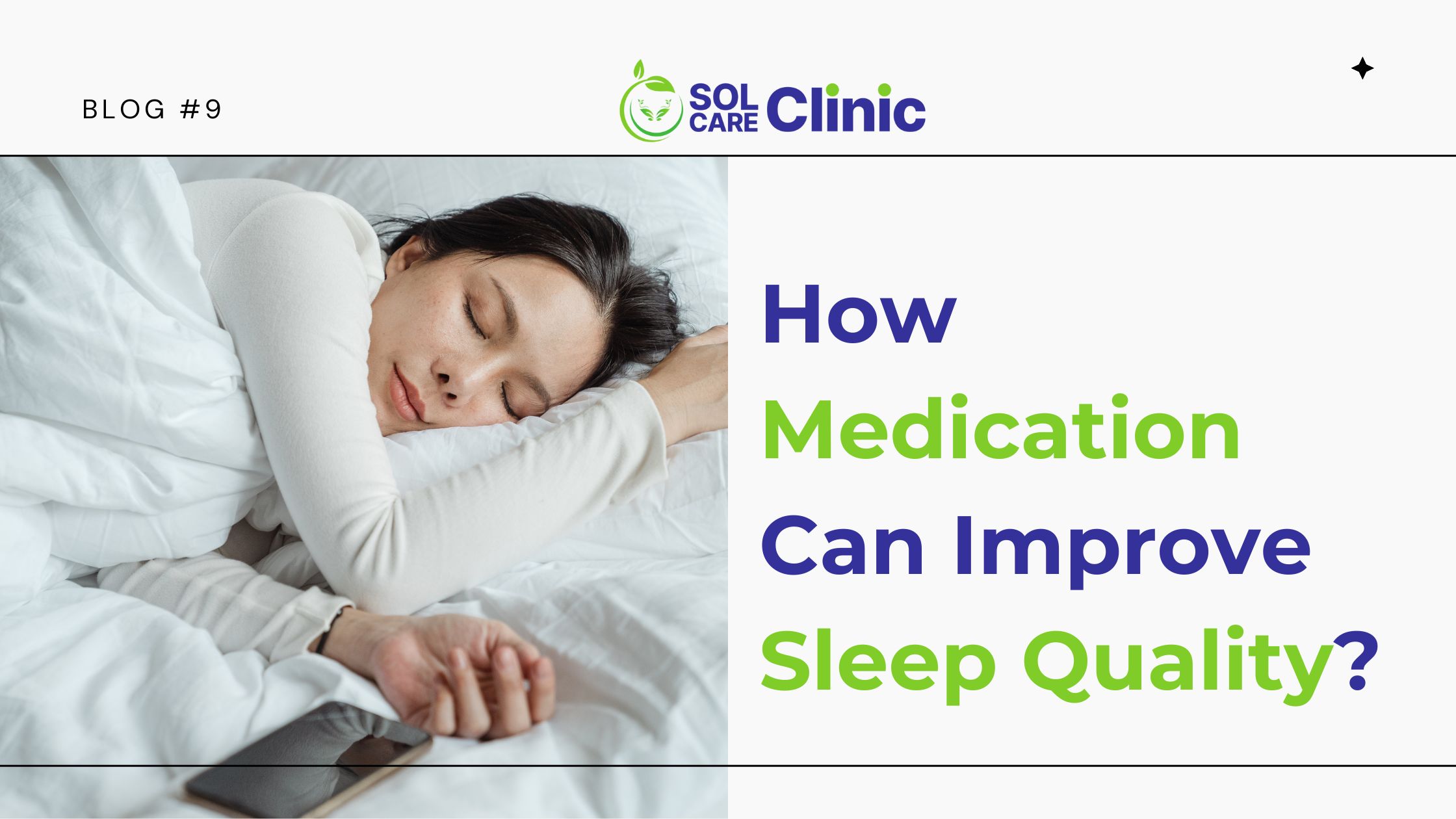Key Pointers
- Sleep medication effects on sleep architecture may not always signify a sleep disorder.
- Understanding the mechanisms of sleep aids is crucial for informed decision-making.
- Safety precautions, including adherence to prescribed dosages, are paramount when using sleep medications.
- Various sleep aids, from prescription to natural remedies, offer diverse options for improving sleep quality.
Any prescription that crosses the blood-brain boundary can change how well we sleep and the structure of our rest. Rest quality alludes to how restful our rest is, how rapidly we nod off, how frequently we awaken during the evening, and how revived we feel in the first part of the day and over the day.
Sleep quality and architecture changes because of medication don’t generally mean there’s a rest issue. In some cases, these progressions can be valuable; sometimes, they are innocuous, and at different times, they are not completely perceived. This conversation will investigate what prescriptions meaning for the brain, heart, or lungs can impact our rest. For a more profound jump into the stages and design of ordinary rest, you can allude to resources explicitly covering that subject.
The Mechanisms of Sleep Aids
Sleep aids predominantly exert their influence through sedative properties, inducing drowsiness and facilitating the transition to sleep. This somnolent state may be induced swiftly to aid in falling asleep or persist longer to ensure uninterrupted slumber throughout the night.
The method by which a sleep aid elicits its sedative impact is contingent upon its chemical constitution. Sleep aids can be categorized into various types based on their mechanisms of action and regulatory status.
How normal is the utilization of Sleep Medication?
Sleep prescriptions have become increasingly prevalent in current culture, with a critical number of people depending on them to battle sleeping disorders and other sleep problems. Utilizing these guides traverses different socioeconomics, mirroring an expansive range of sleep-related issues that individuals face. The inescapable dependence on tranquilizers highlights the significance of grasping their instruments and their impacts.
Is It Safe To Consume Sleep Medications?
Medications are mostly considered safe for brief lengths and according to mandates. By the by, taking into account the penchant for unfavorable impacts, it is judicious to use any tranquilizer under the careful management of a medical services professional.
Relieving the gamble of unfavorable results requires the reasonable utilization of medications.
This normally involves ingesting them at the endorsed stretches and sticking stringently to the suggested measurements. Increased dosages ought to be shunned, regardless of whether sluggishness endures. In addition, medicines should not be amalgamated with different narcotics, liquor, or sporting opiates.
What are the Potential Risks of Sleep Medications?
The side effects of sleep aids can vary depending on the specific type and if the person has other health issues or takes other medications. Generally, most sleep aids can have some negative effects, though some may be more likely to cause these problems.
- Lingering next-day effects
Up to 80% of people using sleep aids report feeling drowsy or slow-thinking the next day. This is especially concerning for morning drivers at a higher risk of car accidents.
- Confusion or loss of coordination
Strong sedatives can cause confusion, dizziness, or trouble concentrating. This can increase the risk of falls or accidents, especially at night.
- Abnormal behavior
Some people may act strangely while partially asleep after taking sleep aids. This can include talking in their sleep, sleepwalking, or even trying to drive while not fully awake.
- Allergic reactions
Rarely some people may have allergic reactions to sleep aids.
- Drug interactions
Sleep aids can interact with other medications, potentially changing their effectiveness or causing side effects.
Classification of Sleep Medications
Sleep aids are medications or substances used to help individuals fall asleep, stay asleep, or improve the quality of their sleep. They can be classified into several categories:
-
Prescription Sleep Medications
These are medications that require a specialist’s remedy. They are ordinarily more grounded and utilized for additional extreme instances of a sleeping disorder.
- Benzodiazepines: These are prescriptions like diazepam (Valium), lorazepam (Ativan), and temazepam (Restoril) that are frequently utilized for tension yet can likewise assist with rest. They can be habit-forming and are generally suggested for transient use.
- Non-benzodiazepine hypnotics: Zolpidem (Ambien), eszopiclone (Lunesta), and zaleplon (Sonata), are frequently favored because they have fewer side effects and less risk of reliance compared with benzodiazepines.
- Antidepressants: Certain antidepressants with narcotic impacts, similar to trazodone (Desyrel), mirtazapine (Remeron), and doxepin (Silenor), are some of the time recommended for rest, especially assuming the patient has sorrow.
- Orexin Receptor Antagonists: These include suvorexant (Belsomra), which works by blocking the action of orexin, a chemical involved in wakefulness.
Over-the-counter (OTC) Sleep Aids
These medications can be bought without a solution and are generally utilized for gentle or intermittent rest issues.
- Allergy medicines: Meds like diphenhydramine (Benadryl, Sominex) and doxylamine (Unisom) are allergy meds that cause sluggishness. They are frequently utilized for momentary help with rest issues.
- Melatonin: It is a chemical that directs rest-wake cycles. It is accessible as an enhancement and is commonly used for sleep deprivation and to change the rest-wake cycle in circumstances like fly slack or shift work.
- Herbal Medications: Valerian root, chamomile, and lavender are accepted to have quieting and rest-actuating properties.
Natural and Alternative Sleep Aids
These include lifestyle practices, herbal remedies, and other non-medication approaches.
- Herbal Teas: Chamomile, passionflower, and valerian root teas are popular choices for promoting relaxation and sleep.
- Aromatherapy: The practice of using essential oils like lavender, chamomile, and cedarwood in diffusers or sprays to create a relaxing environment conducive to sleep.
- Lifestyle Changes: Maintain a regular sleep schedule, create a comfortable sleep environment, reduce screen time before bed, and engage in relaxation techniques such as meditation or deep breathing exercises.
Important Considerations for Sleep Medication
- Consult a Healthcare Provider: Before starting any sleep medicine, especially prescription medications, it’s essential to consult with a healthcare provider to ensure safety and appropriateness for your specific situation.
- Potential Side Effects: Be aware of the possible side effects and the risk of dependency on some sleep aids, particularly prescription medications and certain OTC drugs.
- Non-Medication Approaches: Addressing the underlying causes of sleep problems with non-medication approaches, such as cognitive-behavioral therapy for insomnia (CBT-I), can often be more effective and sustainable in the long term.
Is there any Best Sleep Medication?
The best medication is the one that meets your requirements best, considering your particular rest issues, age, general well-being, and any other prescriptions you may be on. You and your primary care physician can evaluate different tranquilizers and gauge their advantages and disadvantages.
Sometimes, the most effective way to improve your sleep probably won’t involve medicines. Non-clinical therapies can frequently be powerful, and your doctor can assist you with investigating clinical and non-clinical choices to find what’s best for you. Further developed rest propensities, such as adhering to customary bed and wake times, can likewise be a decent choice for certain individuals.
Conclusion
Understanding the effects and mechanisms of sleep medications is essential for optimizing sleep quality while prioritizing safety. Various options are available, and customized approaches guided by healthcare providers can help individuals achieve restful sleep and improve overall well-being.





